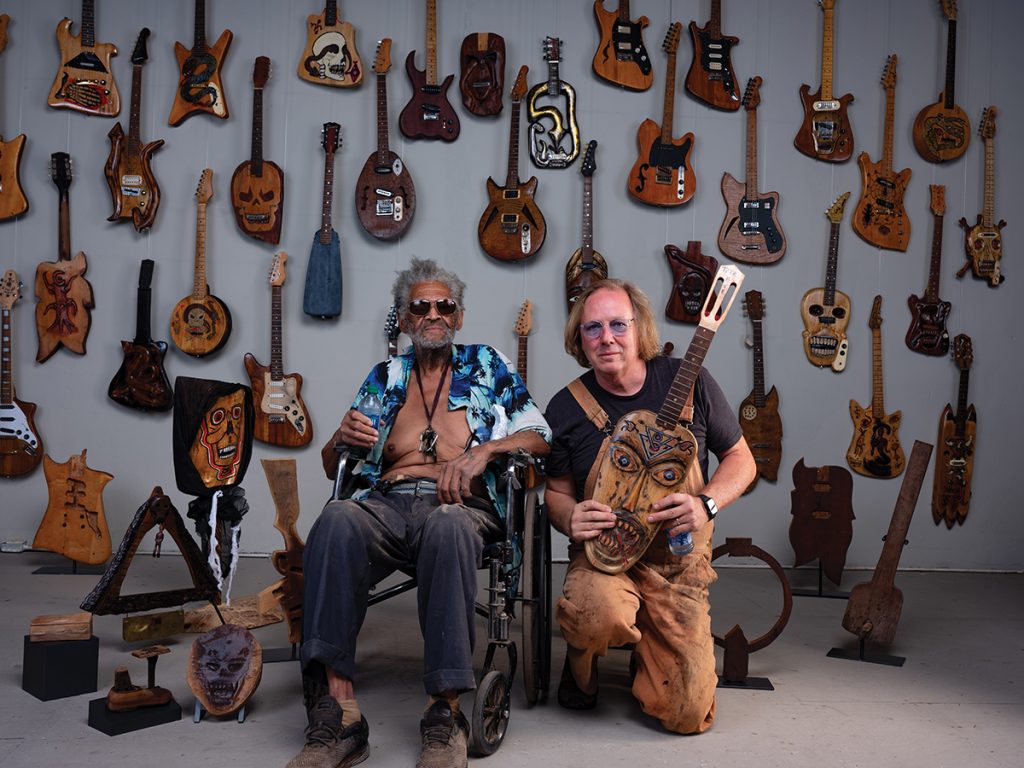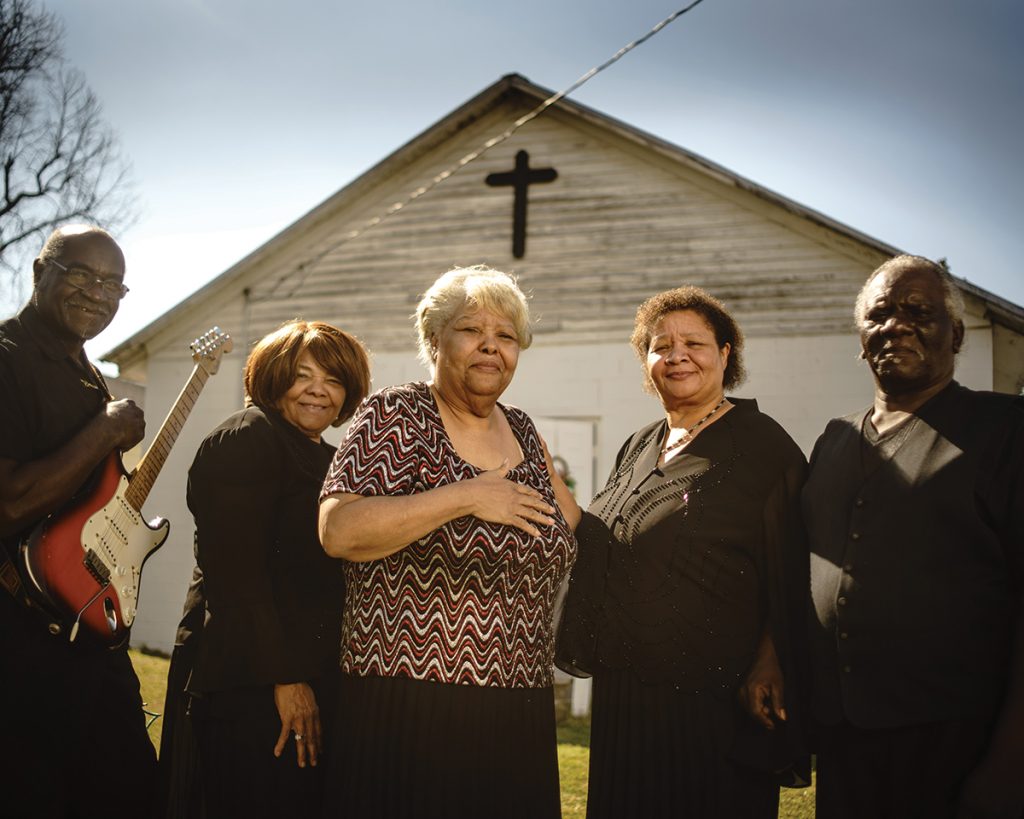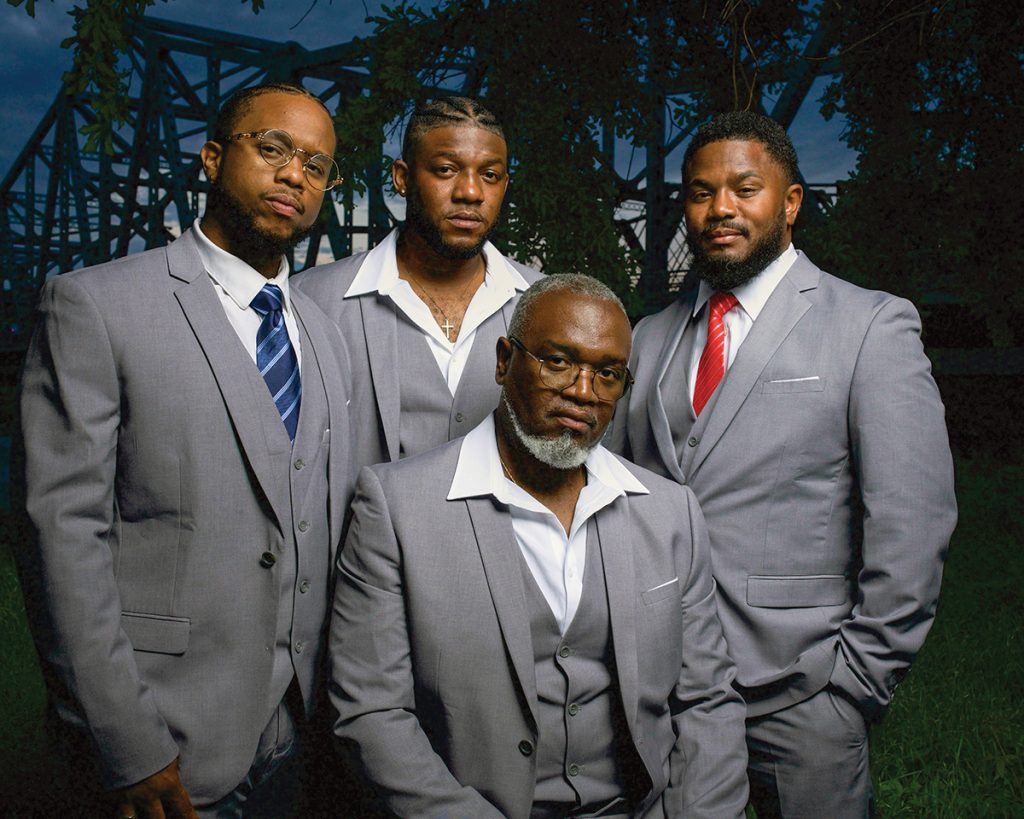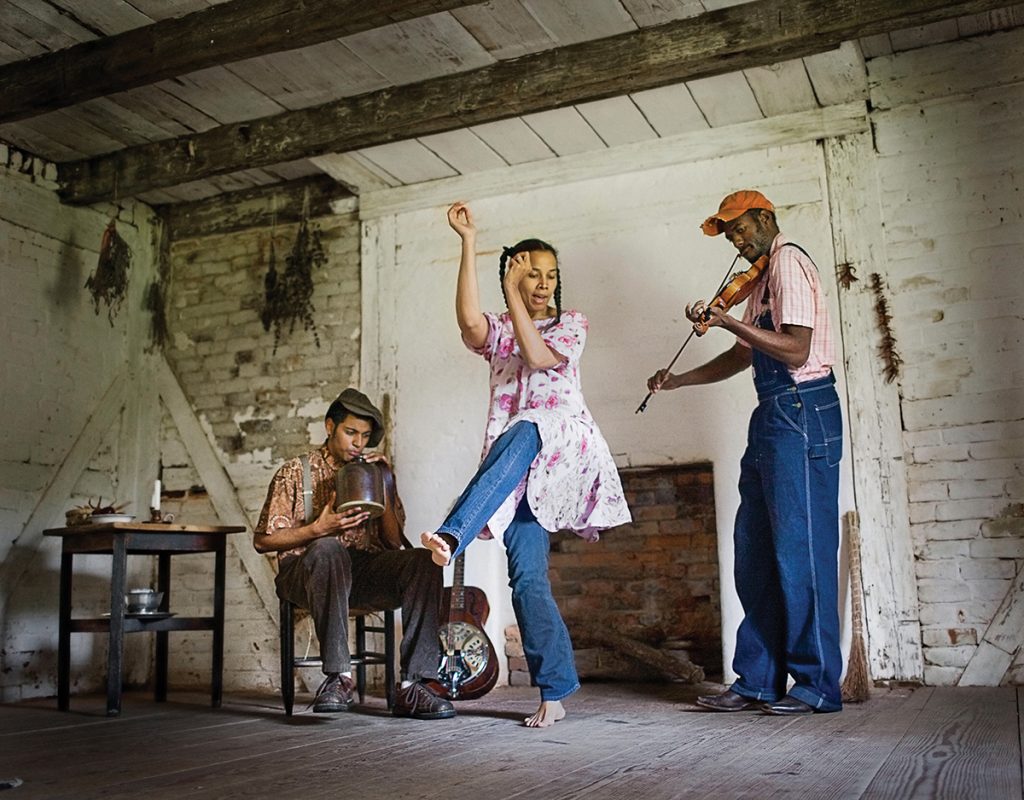This nonprofit helmed by producer Tim Duffy works to keep North Carolina’s rich musical history alive, while supporting its artists.
by David Menconi
Even though he’s not a preacher, Tim Duffy is still an evangelical sort. A native of Connecticut, he came to North Carolina almost 40 years ago to study at the University of North Carolina at Chapel Hill’s folklore program. He has since gone on to a career as documentarian, musician, producer, artist manager, philanthropist, fundraiser and blues crusader of sorts, preaching about the importance of blues music to the state, nation and world.
“Music is important to who we are as a country,” Duffy says. “The U.S. does not have a common religion or ethnicity, but we have this music. It’s our most powerful language and it was mostly created here in the South. North Carolina does not tell its music story enough.”
To that end, Duffy has spent the past three decades spreading the word through the nonprofit Music Maker Foundation. He and his wife, Denise Duffy, formed Music Maker in 1994 with the late Robert “Nyles” Jones, a medicine show blues-guitar legend who performed under the name Guitar Gabriel. Music Maker releases recordings and promotes shows and tours, and also finds other ways to support musicians financially.

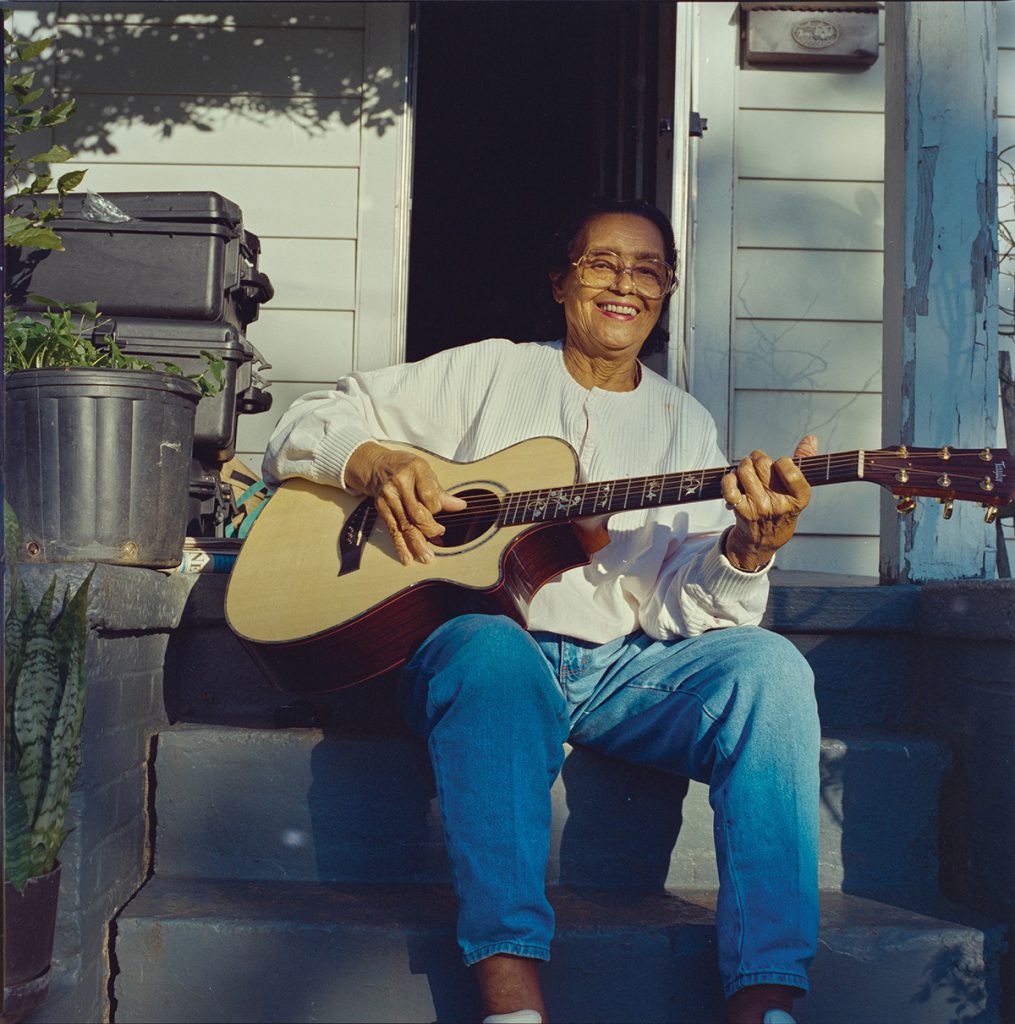
Currently based in Hillsborough, Music Maker has an annual budget of just under $1.3 million, raised primarily through donations. A large chunk of the organization’s budget goes toward grants for artists who need it for everything from rent or groceries to prescriptions. Most of them are elderly, trying to get by on Social Security or disability, and they’ve never made much money from music. “The government should be doing what I’m doing,” Duffy says, “but they never will.”
Music Maker has helped scores of North Carolina legends over the years, Piedmont blues icon Etta Baker and Durham bluesman John Dee Holeman among them. Along with assisting Mebane old-time fiddler Joe Thompson, Music Maker helped launch the career of his protégés, Rhiannon Giddens’ The Carolina Chocolate Drops.
In addition to releasing albums by Music Maker artists, the organization has published books, including Song Keepers: A Music Maker Foundation Anthology, a lavishly illustrated package that comes with four compact discs. Venerable bluesman Taj Mahal, a longtime Music Maker supporter who serves on its 19-member advisory board, ranks Duffy alongside towering figures in the folklore field like field-recording ethnomusicologist Alan Lomax, “Anthology of American Music” compiler Harry Smith, blues scholar Sam Charters, composer/educator John Work and author/documentary filmmaker Zora Neale Hurston.
“Tim’s dedication over 30 years to this labor of love in folklore, ethnomusicology, recording, documenting, distributing and personally creating revenues for overlooked but great traditional artists has improved their lives and music,” says Mahal. “Tim stands tall without question amongst the aforementioned pioneers and luminaries.”
One of Music Maker’s higher-profile projects in recent years was Hanging Tree Guitars, which began as a 2020 book depicting the work of Freeman Vines. A guitar-playing bluesman and luthier, Vines makes guitars with a decidedly outsider-art bent. With the wood of trees once used in lynchings, Vines has made more than 100 such instruments. In addition to their depictions in the pages of Hanging Tree Guitars, Vines’ guitars have also been in a series of art exhibitions.
“He works differently from most people who make guitars,” Duffy says of Vines. “Most look for the straightest wood, but he’s looking for wood from trees with history. His guitars really catch people’s attention.”
Vines lives in Fountain, a tiny town of fewer than 400 in the Eastern North Carolina county of Pitt. Working with Vines has introduced Duffy to numerous other musicians in the region, among them Farmville’s The Glorifying Vines Sisters (who are kin to Freeman Vines) and the Greenville gospel quartet Dedicated Men of Zion — now Music Maker artists all.
“I’m totally convinced Fountain is one of the greatest African-American music communities in the world,” Duffy says. “The coastal plain down to South Carolina was where gospel was invented, music handed down as oral tradition with everyone singing harmony in groups. It’s endless, thousands of families singing harmony. A big community to be involved with.”
Duffy is enthusiastic enough about Fountain to have big plans for the town. To facilitate his organization’s work with regional acts there, a Music Maker compound is in the works with a state-of-the-art recording studio, photo studio and artist-in-residence space. It’s all part of keeping the music alive by helping the people who make it.
“I still love helping people and finding artists,” Duffy says. “The blues and this culture will never die, there’s always more and more out here that need help. Bump ahead 100 years, and all this work we’re doing needs to be preserved. A hundred years from now, all this will someday be stored at UNC’s Southern Folklife Collection. Who knows what will be looked at? If you don’t document it, it goes away. That’s my folklorist training.”
This article originally appeared in the June 2024 issue of WALTER magazine.

